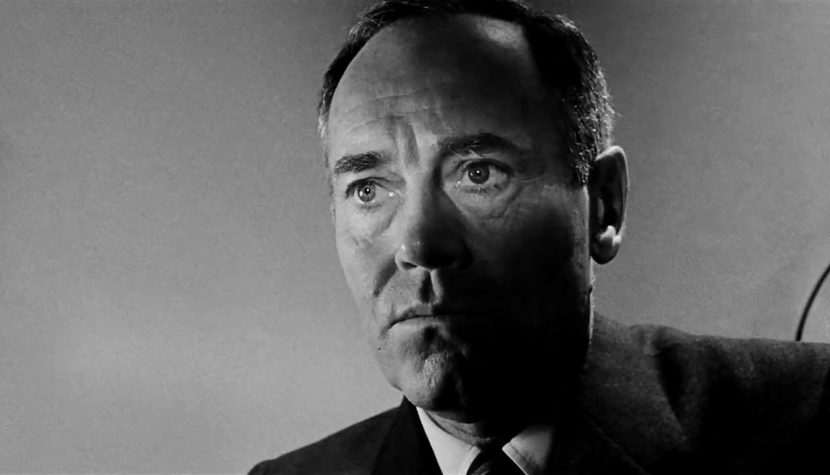FAIL-SAFE. If Russia was bombed

In today’s world, the question of who will use nuclear weapons first is no longer a science or political fiction question. This is a question related to real politics and we should face it again, which can be paralyzing for many of us. It is worth noting, however, that the times of, let’s say, political poker, in which two superpowers pushed each other and threatened to use the ultimate argument of strength, we have already been through, and relatively recently. After World War II, the decades-long period of the Cold War began, in which the condition of peace was to keep the bombs at bay, and the price of this peace, unfortunately, was the constant fear that one of the sides would decide to press the red button.
From the annals of science fiction, the films that approach the Cold War in a metaphorical way are the fastest to extract. Films such as Invasion of the Body Snatchers or The Day the Earth Stood Still turn Cold War fears into fantastic stories about a threat from outer space, thus carrying a pacifist message. But there are also SF films that deal with the Cold War in a literal and open way, in order to outline an alternative vision of the fate of the world. These are visions whose creators had the courage to show something that everyone is afraid of. Fail-Safe is just such a film, the starting point of which for the plot seemed to me extremely intriguing before the screening, because it was terrifyingly close to the threat that becomes real again.

Today, China should be added to the geopolitical map of great powers to make the message credible, but as we know, in the 1960s the main dispute was between the US and the USSR. So we have two superpowers that are fighting for primacy in the world by threatening each other with a nuclear conflict. However, both realize that the measure of peace is the balance of power – if both have access to the final argument, then it is much harder for anyone to use it. Therefore, there is a conflict, but it is a cold conflict. The problem, however, arises when … there is a mistake and the wrong card is thrown on the table. When, as a result of a malfunction, one of the American bombers is ordered to drop an atomic bomb on Moscow, there is little time left to reverse the unfortunate course of events for America and the world. The situation is made more difficult by the fact that, due to communication problems, the order cannot be withdrawn. But even when contact is finally made with the pilot, he remains unfazed, as he has been trained to carry out exactly these kinds of commands to the point of completion.
And what now? The situation seems dramatically bad, not to say hopeless. The American National Defense Staff, where Walter Matthau participates, does not really know how to prevent an imminent tragedy. Then the President comes to the fore, in this case with the graceful face of Henry Fonda. He sits down in a cramped room with the interpreter accompanying him, grabs the phone and calls the representative of the USSR, asking for peace, while informing him that there is a real risk that his country will be bombed. This is where the most interesting moment of the film begins, masterfully led by Sidney Lumet. The Russians are wondering whether to treat the received message seriously, whether to start the evacuation of Moscow, or whether to prepare their own nuclear missiles, aiming them at the country of Uncle Sam.

Related:
 SPACE MUTINY: Science Fiction as the Unknown Sister of Battlestar Galactica
SPACE MUTINY: Science Fiction as the Unknown Sister of Battlestar Galactica CHARLES MANSON 's Murders: The Truth Behind Mindhunter and Once Upon a Time… in Hollywood
CHARLES MANSON 's Murders: The Truth Behind Mindhunter and Once Upon a Time… in Hollywood 1922. A Haunting and Disturbing Adaptation of Stephen King's Novella
1922. A Haunting and Disturbing Adaptation of Stephen King's Novella CHRISTINE: A Collision of Visions from Two Great Horror Narrators—John Carpenter and Stephen King
CHRISTINE: A Collision of Visions from Two Great Horror Narrators—John Carpenter and Stephen King
In this way, a race against time and an exciting psychological game begins, which we observe from the perspective of only a few places and only a few characters. From the point of view of structure, this story is therefore very intimate, while from the point of view of its dimension, it has a global significance, affecting the imagination. It’s a bit like we translated 12 Angry Men into the language of war. This time, the leitmotif is a crime that can be remembered as genocide and a contribution to World War III. The fate of the world hangs in the balance, and the US President doubles down on the phone to prevent a tragedy. However, when attempts to shoot down a bomber fail, our hero has to make a radical, yet ethically justified decision. Although there is room for a broader discussion here, which is undoubtedly another advantage of the film – it lives in us even after the screening.
In the year of the premiere of Fail-Safe, the reception of the film was disturbed. Lumet’s plans were spoiled by none other than Stanley Kubrick himself. At the beginning of 1964, the famous Dr Strangelove had its premiere, whose starting point for the plot is very similar. Effect? Viewers who later watched Fail-Safe laughed, remembering the ridiculous and satirical overtones of Kubrick’s film. And that’s not what Lumet meant. Today, however, we have the “comfort” that we laugh a little less. The ongoing conflict beyond our eastern border makes us follow such stories with caution, reflecting on their possible existence in reality. Which of course is fucking terrifying.

Fail-Safe is a movie from the distant past, because it was made in 1964, but when you watch it today, it grabs you by the throat like the best thriller. I love those moments when SF answers the “what if” question, because at its core, that’s what the genre is for. Sometimes it is better to fantasize and write down possible scenarios of events on paper than living in a bubble of false security, waking up at some point with your hand in the potty, seeing a nuclear mushroom in the distance. Perhaps with films like Fail-Safe creating an alternative history, we can avoid some mistakes in the future. Although it will be difficult if – as SF says more than once – we entrust our fate one hundred percent to technology. This one can be defective, this one can be taken over by the enemy, this one can finally be turned off and bring us doom, although paradoxically we fought for it to ensure the immortality of civilization.

